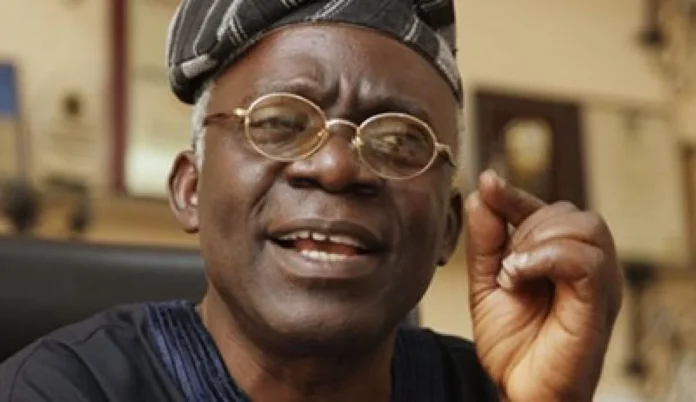Human Rights lawyer, Femi Falana, SAN, has called on the Economic and Financial Crimes Commission (EFCC) and the Independent Corrupt Practices and Other Related Offences Commission (ICPC) to investigate the alleged criminal diversion of the $3.4 billion loan obtained from International Monetary Fund (IMF) by Nigeria to fight the COVID-19 pandemic.
He made the call in a statement he signed on behalf of the Alliance on Surviving COVID-19 and Beyond (ASCAB) on Sunday.
Falana also called on the IMF board to probe alleged deliberate refusal of its management to ensure that the emergency funds were “used for their intended purposes“.
He further urged the IMF to suspend the collection of the scheduled charges, including net charges, basic interest, and administrative fees, amounting to SDR 125.99 million (N275.28 billion) pending the conclusion of its investigation.
Last week, the International Monetary Fund (IMF) confirmed that Nigeria had fully repaid the $3.4 billion COVID-19 financial support it got under the Rapid Financing Instrument (RFI).
Although Nigeria’s principal balance stands at zero, but scheduled charges, including net charges, basic interest and administrative fees, amount to SDR 125.99 million. At the current exchange rate, this translates to approximately N275.28 billion.
“It is pertinent to recall that in the wake of the COVID-19 in 2030, Nigeria requested emergency assistance of about US$3.4 billion—equivalent to 100 percent of its quota from the International Monetary Fund to shore up the country’s economy and help businesses weather the storm of a deadly pandemic that disrupted global markets and plunged the world into a recession.
“At the meeting of the IMF Executive Board held on April 28, 2020, the financial support of $3.4 billion was approved to provide critical support to shore up Nigeria’s health care sector, and shield jobs and businesses from the shock of the COVID-19 crisis. In particular, the loan was designed to help alleviate the impact of the COVID-19 pandemic and the sharp fall in oil prices, and also help limit the decline in international reserves,” Falana said.



